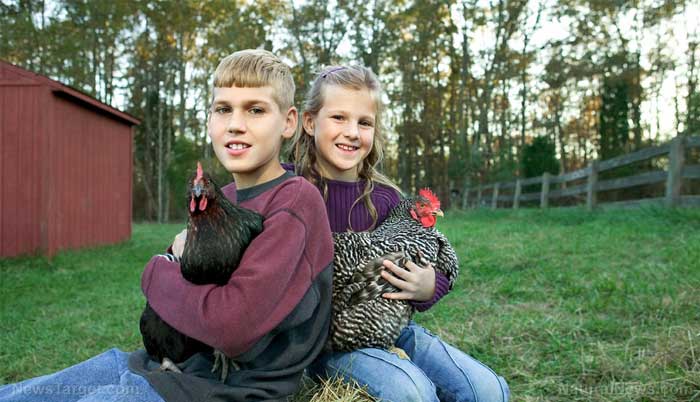![]() Home > Lifestyle
Home > Lifestyle
Beginner’s Guide To Raising Chickens: Terms You Definitely Need To Know

![]() December 12th, 2017 | 10:07 AM |
December 12th, 2017 | 10:07 AM | ![]() 2091 views
2091 views
NATURALNEWS.COM
Raising backyard chickens has been gaining popularity recently because of its varied benefits, including additional food and income. If you are just attempting to try your hand at this homesteading staple, it is important that you know the trade inside-out.
Liz from TheCapeCoop.com gives a list of the “chicken ABCs” or terms that every beginner needs to understand and remember in order to be successful at this endeavor.
Meet the family
A male chicken that is at least one year old is called a cock or rooster. His female counterpart is called a hen.
Males that are under one year old are called cockerels, while females are called pullets.
A newly hatched or very young chicken is called a chick, until it starts to lose its downy feathers and develop adult ones (which is when the chick is about six weeks old).
A clutch is what you call a group of eggs in one nest. When a hen decides to sit on a clutch of eggs for nearly 24 hours a day, she is a broody hen. She will stay with the eggs and even sit on an empty nest when you collect the eggs as long as she is in that phase. She will not leave the nest save for eating and relieving herself. A broody hen does not lay eggs.
A bantam is a type of chicken that is a quarter or half the size of a standard breed.
Parts of a chicken
The red (or reddish) fleshy growth on your chicken’s head is called a comb. Cocks have larger combs than hens, and they come in different sizes – from tiny pea combs to large walnut, rose or cup combs.
The strips of flesh on either side of a chicken’s throat or beak are called wattles, which are typically red and also larger in males.
The gizzard is one of the chicken’s internal organs – it crushes food with the help of small pebbles and grit. Anything that was ingested but not digested goes to the crop, a part of the digestive system located at the base of the neck.
Chickens get rid of waste through their backsides called vents. Hens lay eggs through vents as well.
Your chickens will shed and grow new feathers to replace old ones – this phase is called molting.
Now that you know your chickens inside-out, you can’t start raising them yet until you have the following:
Grit – This is made up of bits of rock, shell, or sand that help chickens break down food.
Scratch – This is a type of feed that contains cracked corn and whole grains that are given as treats to your chickens apart from the main feed.
Coop – This is an enclosed house where your chickens will live; some chickens have an attached, wire-enclosed chicken run.
Dust bathing – Chickens will often cover themselves in dust in a shallow hole, to keep away mites and other parasites.
Nest box – Hens lay eggs in nest boxes, which could be made of wood; you can also use a plastic bucket or a large bin.
Brooder box – Keep the baby chicks in a box with a heat lamp, separate from the rest of your flock for the first few weeks of their life.
Roost – Chickens don’t sleep on the ground, so they need a perch where they can rest. It can be made of a branch or a thin piece of wood.
Source:
courtesy of NATURALNEWS
by Janine Acero
If you have any stories or news that you would like to share with the global online community, please feel free to share it with us by contacting us directly at [email protected]